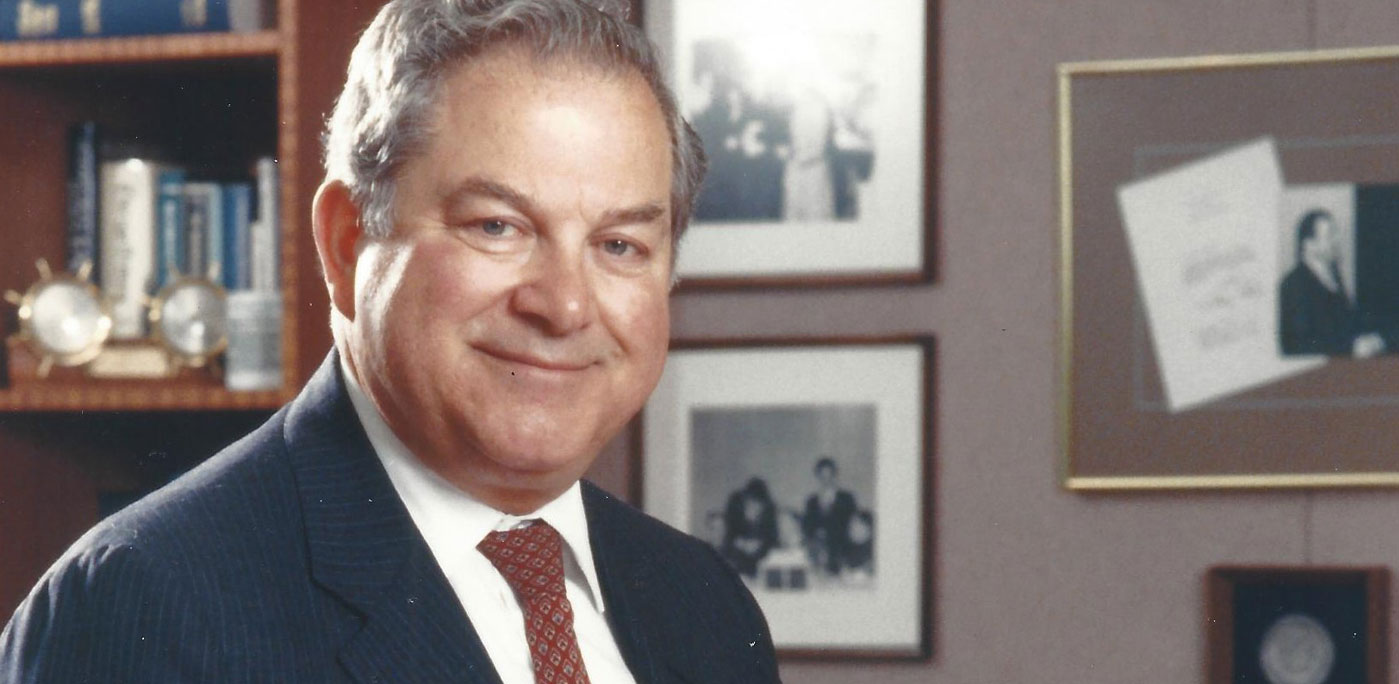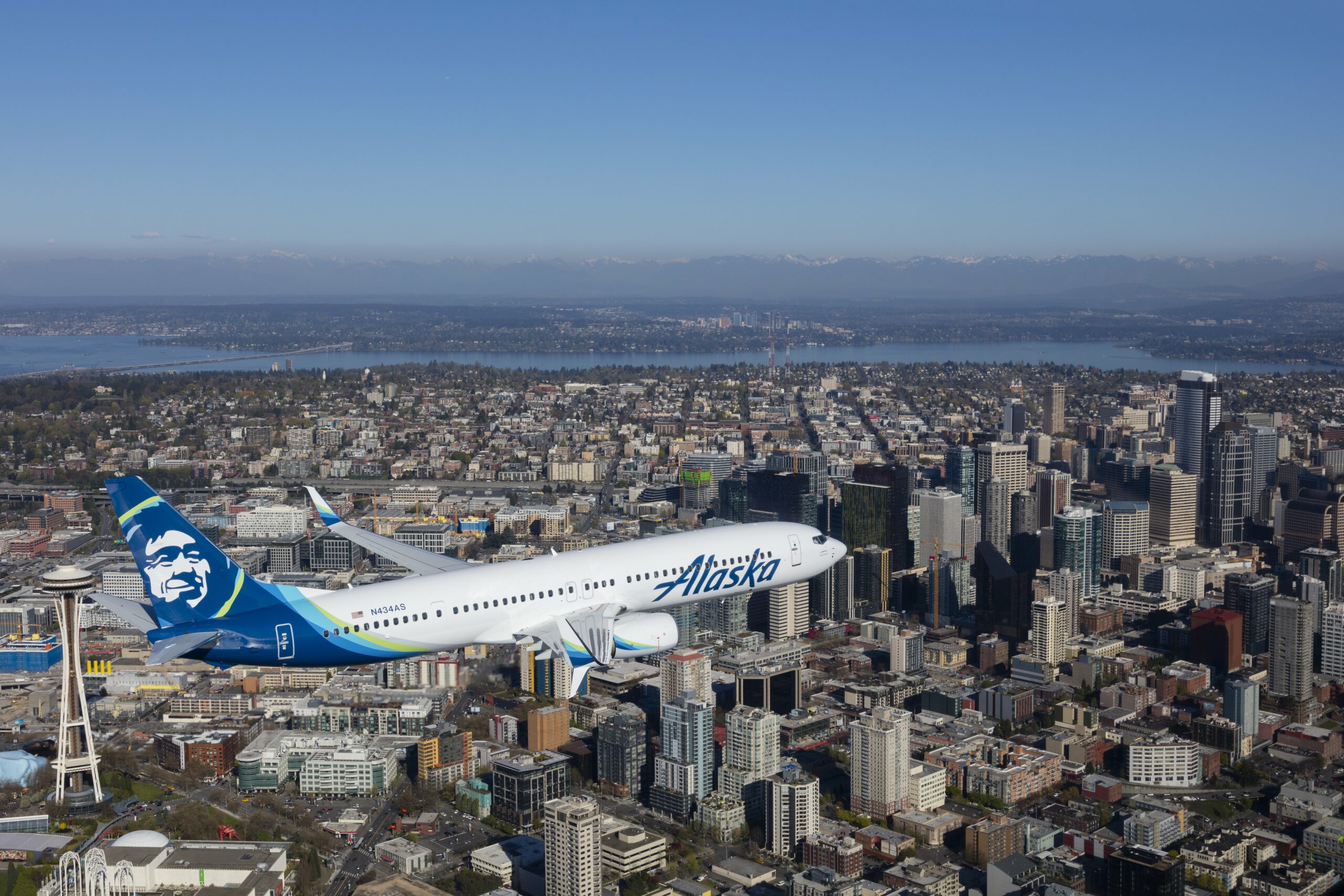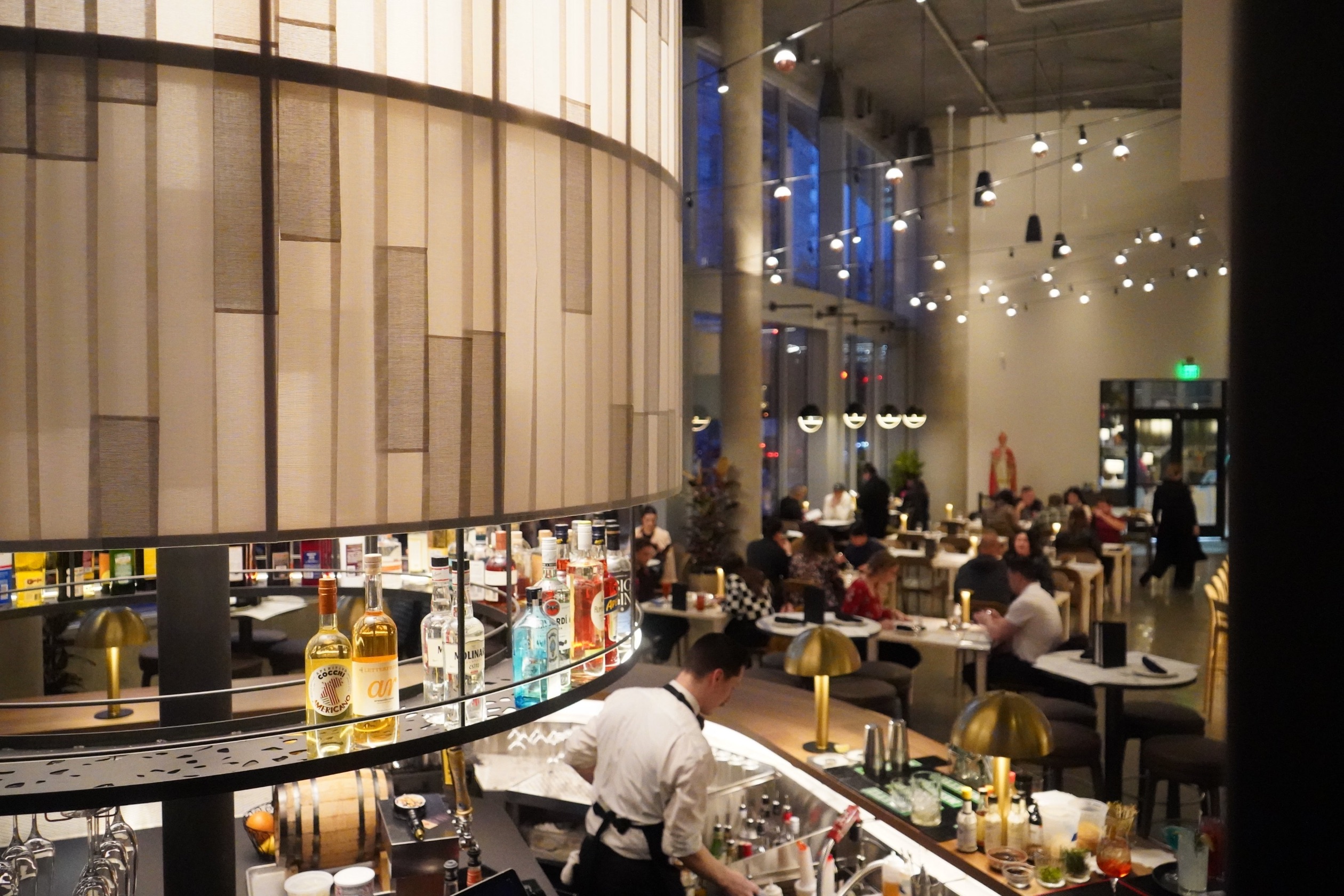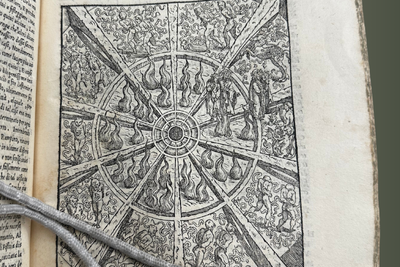From 1978-1993, Virgil Fassio was the publisher of the Seattle Post-Intelligencer, one of the city’s two daily newspapers until it closed in 2009. His position there capped a 46-year career in newspaper publishing that included major dailies, such as the Detroit Free Press and the Chicago Tribune, as well as small-city weeklies.
Fassio was born outside Pittsburgh, Penna., in 1927, and got his first taste of publishing during his college days when he and a friend started a neighborhood tabloid. From those humble beginnings, his career flourished, carrying him on delegations around the globe and into meetings in the White House and the halls of Congress.
Now aged 90, Fassio just published his memoirs recording his journey from Pittsburgh to Seattle. Called Steel City to Emerald City: A Newspaperman’s Life Journey, the book was published by That’s Thirty Press. It recounts his childhood in an Italian household, his early years as a journalist and his rise up the newspaper ladder to publisher.
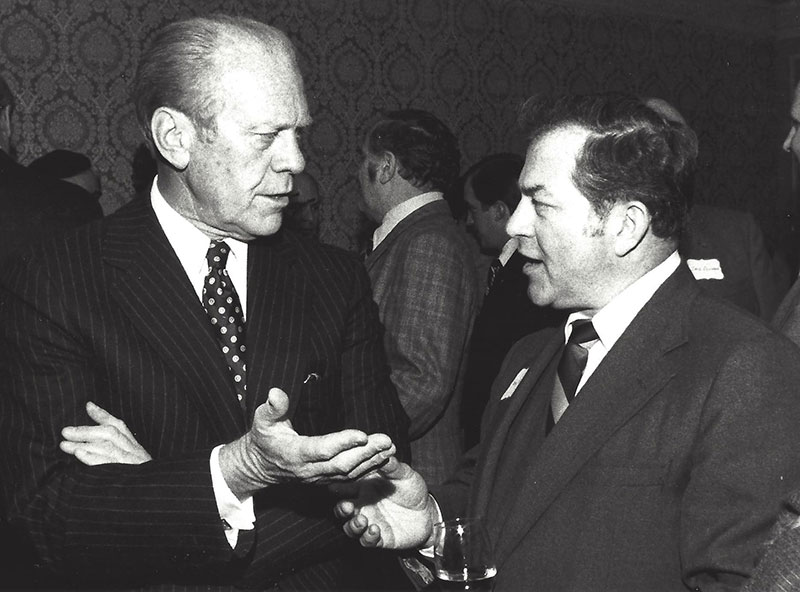
Fassio (right) holds an earnest discussion with former President Gerald Ford in Seattle. Fassio’s job as a newspaper publisher put him in contact with many heads of state
Referred to by his colleagues as “the real thing,” Fassio was a man who could make things happen, but he never lost sight of his Italian heritage and his Steel City roots. The following answers are based on Fassio’s memoirs and a radio interview he gave to KKNW-AM.
Tell us a bit about your Italian heritage.
Dad left Italy in 1920, never to return, with $20 in his pocket and not knowing a word of English. He joined a cousin in Akron, Ohio, and worked as a laborer on a bridge project. Mom came in 1921, the only one in her family ever to emigrate. My parents moved to Chicago in 1922, and the following year moved to a small town near Pittsburgh. They had little formal education but brought with them a strong work ethic and a desire to make a better life for themselves and their children.
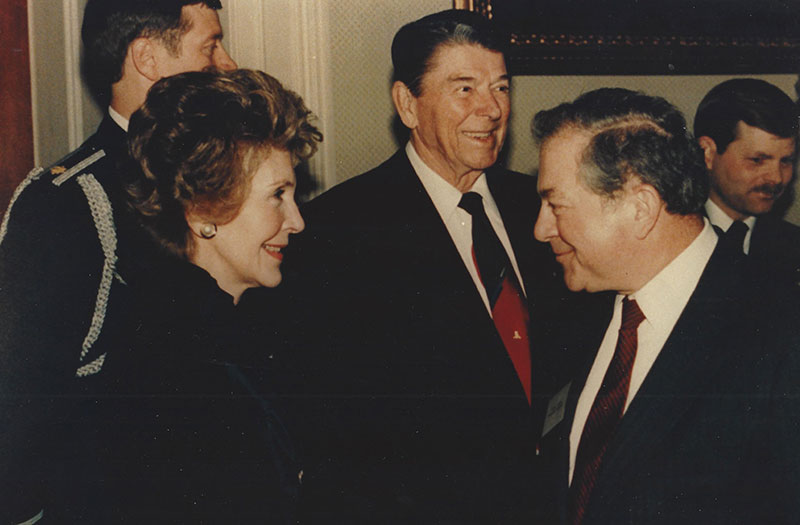
A signed commemorative photo records the day that Fassio (right) met Ronald and Nancy Reagan during a White House briefing on drug-abuse prevention
When did you get your first taste of the newspaper life?
In 7th grade, after occasionally substituting for a pal for a few years, I landed my first paying job and an introduction to the newspaper business: a Pittsburgh Press home-delivery route with 45 to 50 customers. I collected 28 cents every week for seven-day delivery, and deposited most of my $2.50 weekly profit into a savings account.
After the U.S. Navy, you attended college on the GI Bill. Did you resume your interest in newspapers during your college years?
I enjoyed writing and was taking an elective course in reporting. With Tom Miller, a 40-year-old printer, I decided to start a biweekly tabloid newspaper, the Beechview News. Tom would be the publisher and handle advertising. I would be the editor and writer. I invested $300, a lot of money then. We published our first biweekly edition in November 1947 and distributed copies to many homes and every retail store. The cost was five cents a copy or $1 a year.
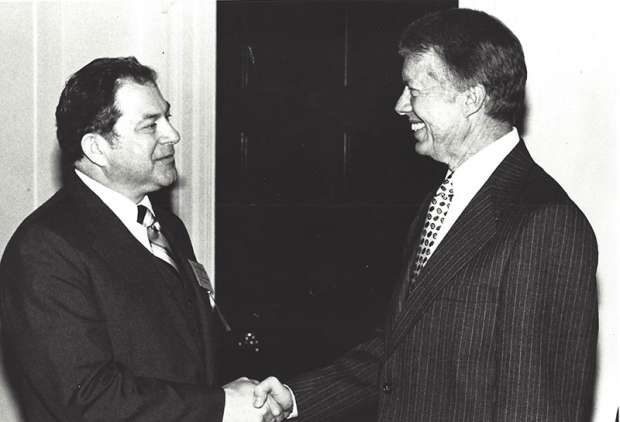
Virgil Fassio, a first-generation Italian-American who became publisher of the Seattle Post-Intelligencer, chats with President Jimmy Carter at the White House in 1979
Tell us about some of the stories that broke while you were at the Seattle P-I.
One of the biggest stories concerned the Washington Public Power Supply System, which was building five nuclear power plants with construction flaws and management boondoggles. The series of investigative stories culminated in cancellation of the plants and the worst government bond failures in history. In another investigation, we uncovered mismanagement of the Washington State Investment Board, saving the state millions of dollars. And [the paper] uncovered a long-standing practice of hauling liquid foodstuffs in the same trucks that carried toxic chemicals, resulting in new regulations.
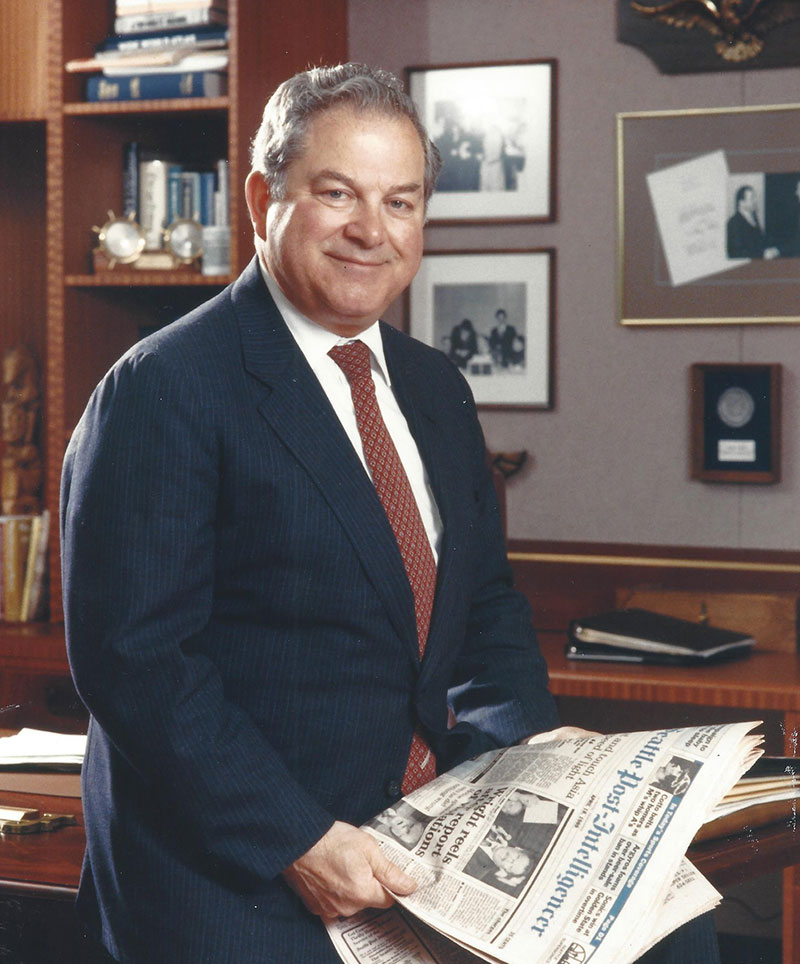
Virgil Fassio, long-time publisher of the Seattle Post-Intelligencer, just published a new book recounting his life as an Italian-American and his newspaper career
I imagine you’ve met many famous people during your long career.
I met presidents, kings, queens and national heads of state around the world, men and women who shaped the destiny of their independent nations, including Nasser in Egypt, Nehru in India, Rahman in Malaysia, and Lee Yuan Kew in Singapore. I also rubbed shoulders with national, state and local government representatives, business and civic leaders, and athletes.
You’ve been a life-long traveler. What were some of your favorite trips?
Mom, sister Christina and I sailed from New York aboard the Saturnia bound for Genoa in 1949. Like most of Europe, Italy was recovering and rebuilding slowly from the devastation of the war. [During the trip,] my Uncle Cesare arranged a tour of Gazzetta Del Popolo, a Torino newspaper with national distribution. The staff welcomed this American journalist from Pittsburgh as if I represented a major US newspaper.
A trip around the world in 1958, at age 30, was the fulfillment of a dream. I was invited by [travel agency owner] Marcel Duriaux to be his assistant on a fact-finding trip for newspaper and broadcast executives. For 37 days, we circled the globe meeting and interviewing heads of state in Europe, the Middle East and the Far East. My fellow travelers paid upwards of $10,000 each. I went along without cost, but was expected to earn my way. I did. In each city, I arranged for ground transportation, made sure everyone got a wake-up call, confirmed airlines schedules, recorded expenses and more.
I heard you helped keep the Mariners baseball team in Seattle.
Yes, with other executives of the RBI Club, I was responsible for promoting baseball, selling season tickets and making sure the Mariners did not leave town. I think I am most proud of this work. A big league city needs big league baseball. I am also proud that I threw out the opening-day first pitch a total of eight times!
Dal 1978 al 1993, Virgil Fassio è stato l’editore del Seattle Post-Intelligencer, uno dei due quotidiani della città fino alla sua chiusura nel 2009. Come tale ha ricoperto una carriera lunga 46 anni nella pubblicazione di giornali tra cui importanti quotidiani, come il Detroit Free Press e il Chicago Tribune, così come settimanali di piccole città.
Fassio è nato fuori Pittsburgh, Pennsylvania, nel 1927, e ha sperimentato per la prima volta l’editoria durante gli anni del college, quando lui e un amico hanno avviato un tabloid di quartiere. Da quelle umili origini, la sua carriera è cresciuta, portandolo a far parte di delegazioni in giro per il mondo e delle riunioni alla Casa Bianca e nelle sale del Congresso.
A 90 anni, Fassio ha appena pubblicato le sue memorie che registrano il suo viaggio da Pittsburgh a Seattle. Chiamato Steel City a Emerald City: A Life Newspaperman’s Journey, il libro è stato pubblicato da That’s Thirty Press. Racconta la sua infanzia in una famiglia italiana, i suoi primi anni come giornalista e il suo salire la scala del giornale sino a divenire editore.
Considerato dai colleghi come “la cosa vera”, Fassio è un uomo che poteva far accadere le cose, ma che non ha mai perso di vista la sua eredità italiana e le sue radici nella Steel City. Le seguenti risposte sono basate sulle memorie di Fassio e su un’intervista radiofonica da lui rilasciata a KKNW-AM.
Ci dica del suo patrimonio italiano.
Papà lasciò l’Italia nel 1920, per non tornarci mai più, con 20$ in tasca e senza sapere una parola di inglese. Ha raggiunto un cugino ad Akron, in Ohio, e ha lavorato come operaio nel progetto di un ponte. La mamma arrivò nel 1921, l’unica della sua famiglia a emigrare. I miei genitori si trasferirono a Chicago nel 1922 e l’anno seguente si trasferirono in una piccola città vicino a Pittsburgh. Avevano poca istruzione formale, ma portavano con sé una forte etica del lavoro e il desiderio di migliorare la vita propria e dei propri figli.
Quando ha avuto il primo assaggio di vita giornalistica?
Durante il 7° grado, dopo aver sostituito occasionalmente un amico per alcuni anni, ho ottenuto il mio primo lavoro retribuito e fatto i primi passi nel settore dei giornali: un percorso di consegna a domicilio della Pittsburgh Press con 45-50 clienti. Ho raccolto 28 centesimi ogni settimana per 7 giorni di consegna e ho depositato la maggior parte del mio profitto settimanale di 2,50 $ su un conto di risparmio.
Dopo la US Navy, ha frequentato il college con la GI Bill. Ha ripreso il suo interesse per i giornali durante gli anni del college?
Mi piaceva scrivere e stavo seguendo un corso di reportage. Con Tom Miller, uno stampatore di 40 anni, ho deciso di iniziare un tabloid bisettimanale, il Beechview News. Tom sarebbe stato chi pubblicava e chi amministrava la pubblicità. Io l’editore e lo scrittore. Ho investito 300 $, un sacco di soldi allora. Pubblicammo la nostra prima edizione bisettimanale nel novembre 1947 e distribuimmo copie in molte case e in ogni negozio al dettaglio. Il costo era di cinque centesimi una copia o 1 $ all’anno.
Ci racconti alcune delle storie accadute mentre era al Seattle P-I.
Una delle più grandi storie ha riguardato il Public Power Supply System di Washington, che stava costruendo cinque centrali nucleari con difetti di costruzione e di gestione aziendale. La serie di storie investigative è culminata con la cancellazione delle centrali e in uno dei peggiori fallimenti finanziari governativi della storia. In un’altra indagine, abbiamo scoperto la cattiva gestione del Washington State Investment Board, salvando milioni di dollari statali. E [il giornale] ha scoperto una pratica consolidata di trasportare alimenti liquidi negli stessi camion che trasportavano sostanze chimiche tossiche, con il risultato di nuove regolamentazioni.
Immagino che abbia incontrato molte persone famose durante la sua lunga carriera. Ho incontrato presidenti, re, regine e capi di stato nazionali in tutto il mondo, uomini e donne che hanno plasmato il destino delle loro nazioni indipendenti, tra cui Nasser in Egitto, Nehru in India, Rahman in Malesia e Lee Yuan Kew a Singapore. Ho anche incontrato rappresentanti del governo nazionale, statale e locale, dirigenti economici e civili, e atleti.
E’ stato un viaggiatore per tutta la vita. Quali sono stati alcuni dei suoi viaggi preferiti?
Mamma, mia sorella Cristina eio salpammo da New York a bordo della Saturnia diretta a Genova nel 1949. Come la maggior parte dell’Europa, l’Italia si stava riprendendo e ricostruendo lentamente dalla devastazione della guerra. [Durante il viaggio] mio zio Cesare organizzò un tour della Gazzetta del Popolo, un giornale torinese con distribuzione nazionale. Lo staff ha accolto questo giornalista americano da Pittsburgh come se rappresentassi un importante quotidiano americano.
Un viaggio intorno al mondo nel 1958, all’età di 30 anni, fu la realizzazione di un sogno.
Sono stato invitato dal [proprietario di un’agenzia di viaggi] Marcel Duriaux per essere il suo assistente in un viaggio di ricerca di giornalisti e dirigenti di trasmissioni. Per 37 giorni, abbiamo fatto il giro del mondo per incontrare e ascoltare capi di stato in Europa, Medio Oriente e Estremo Oriente. I miei compagni di viaggio hanno pagato più di 10.000 $ ciascuno. Sono andato avanti senza costi, ma mi aspettavo di guadagnare. L’ho fatto. In ogni città, ho organizzato il trasporto via terra, assicurandomi che tutti ricevessero la sveglia, confermando gli orari delle compagnie aeree, le spese sostenute e altro ancora.
Ho sentito che ha aiutato a mantenere la squadra di baseball dei Mariners a Seattle.
Sì, con altri dirigenti del RBI Club, ero responsabile della promozione del baseball, della vendita di biglietti stagionali e del fatto che i Mariners non lasciassero la città. Penso di essere molto orgoglioso di questo lavoro. Una grande città della Lega ha bisogno del baseball della grande Lega. Sono anche orgoglioso del fatto che ho buttato fuori il primo lancio nel turno di apertura per un totale di otto volte!




